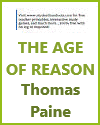Watching quality feature films and documentaries can greatly enhance high school World History students' understanding of the European Enlightenment. This period, which spanned the 17th and 18th centuries, was marked by a surge in intellectual and philosophical thought that challenged traditional authority and emphasized reason, individual rights, and scientific inquiry. Films and documentaries bring this dynamic era to life by portraying the people, ideas, and events that shaped modern Western thought.
Documentaries provide historical context and expert commentary, helping students grasp complex Enlightenment concepts such as social contract theory, separation of powers, and natural rights. They often include visuals of primary documents, reenactments, and maps, making abstract ideas more concrete and easier to understand.
Feature films that dramatize the lives of Enlightenment thinkers--such as Voltaire, Rousseau, or Mary Wollstonecraft--can humanize these figures, showing their struggles, relationships, and the social conditions they challenged. Through storytelling, students gain a more emotional and personal connection to the material.
Additionally, visual media appeals to different learning styles and can spark classroom discussions and critical thinking. By integrating films and documentaries into instruction, educators can deepen students' engagement and help them better appreciate the Enlightenment's lasting impact on democracy, human rights, and modern political systems.
|

















































